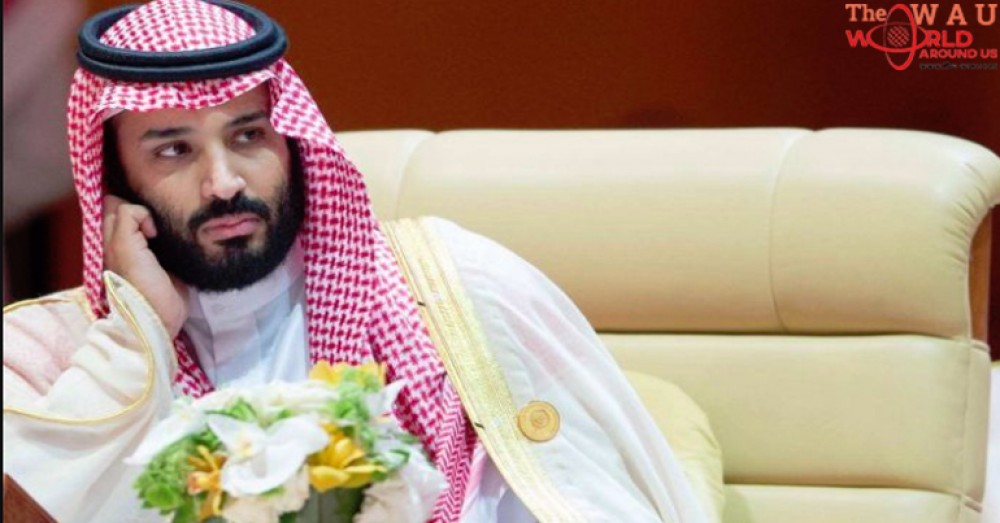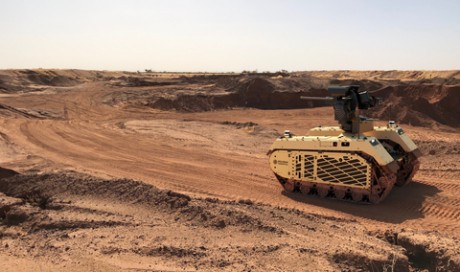There is only one way the crisis created by the brutal murder of Jamal Khashoggi in the Saudi consulate in Istanbul will be solved and that is for King Salman to find another heir to his throne.
Try as he may to wash his hands of Khashoggi’s blood, there is no way for Mohammed bin Salman, the crown prince, to escape responsibility for this heinous and barbaric crime.
Today, Middle East Eye publishes the first detailed account of “Tiger Squad”, the elite unit that carried out this assassination and countless others. Read it and ask yourself whether a unit of this size, financial resources and global operational ability was indeed a “rogue” unit of which Mohammed bin Salman had no knowledge.
Ask yourself whether the existence of such a unit could have been unknown to a crown prince who placed five of his closest men in it and who gave it a budget for mounting complex and expensive operations on foreign soil
Firqat el-Nemr - or Tiger Squad - was formed over a year ago, comprised of 50 of the best-trained operatives from military and intelligence. Its mission is to carry out covert executions of Saudi dissidents at home and abroad.
The squad, under the direction of Major General Ahmed al-Assiri, who has now been sacked, contained five trusted members of the crown prince’s security detail, so that he would stay in direct touch with it.
The leader of the Istanbul operation, Maher Abdulaziz Mutreb, is a diplomat and major general who has travelled with MBS earlier this year on tours of Boston, Houston and the United Nations in New York. He is described in our report as "the spinal cord of the Tiger Squad". "He was chosen by bin Salman himself, who depends on him and is close to him," the Saudi source - who has intimate knowledge of the kingdom's intelligence services - told MEE.

The Tiger Squad's scalps also include Prince Mansour bin Muqrin, the deputy governor of Asir province and the son of a former crown prince, whose helicopter went down near the Yemen border in November 2017. The man who shot down the helicopter was Meshal Saad al-Bostani, who was part of the murder squad in Istanbul.
Although it was reported last week that he was announced dead in a car accident in Riyadh, a source tells MEE al-Bostani was, in fact, poisoned and killed in prison.
The president of Mecca public court, Sheikh Suliman Abdul Rahman al Thuniyan, is believed to be another victim of the Tiger Squad, which had him injected with deadly viruses while he was in hospital on a routine check earlier this month.
Ask yourself whether the existence of such a unit could have been unknown to a crown prince who placed five of his closest men in it and who gave it a budget for hiring private planes and mounting complex and expensive operations on foreign soil.
The one question that matters
Khashoggi’s murder has transcended questions of foreign policy shaped by values of democracy, free speech, and due process. The Khashoggi killing raises questions of cold, unblinking realpolitik.
Three weeks into this affair and with the overwhelming evidence from the Turkish inquiry and intelligence from US and British services, world leaders have only one question to ask themselves: is Saudi Arabia safe in the crown prince’s hands?
The kingdom is not Libya under Gaddafi. Nor is it Syria under Bashar al-Assad. It is the world’s largest oil producer. It is the region’s richest nation.
For better or worse (mainly worse), it is the key Arab state. In the wrong hands, Saudi Arabia has already proved that it can determine the fate of presidents in Egypt, kidnap prime ministers from Lebanon, attempt coups in Qatar and, when that fails, blockade it. It can start wars in Yemen.
The man who runs such a country is therefore a vital strategic Western interest. It is important that he is mentally stable.
The first intelligence agency to highlight bin Salman's potentially unstable nature was Germany's Federal Intelligence Service - the Bundesnachrichtendienst (BND).
In December 2015, when MBS was still only a defence minister, and when his cousin Mohammed bin Nayef was crown prince, the BND took the unusual step of publishing an assessment warning of the dangers the then 29-year-old prince posed.
"The careful diplomatic stance of older members of the Saudi royal family has been replaced by an impulsive policy of intervention," the BND said.
In June last year, I dubbed Prince Salman the prince of Chaos. The question the US and Britain have to ask themselves is whether they really are ready to deal with Saudi Arabia as the Kingdom of Chaos.
After the serial disaster of Western intervention in the Middle East and the collapse of Yemen, Libya, Syria and the near collapse of Iraq, the overwhelming objective of all Western nations must be to have leaders who can ensure stability.
...[ Continue to next page ]
Share This Post















